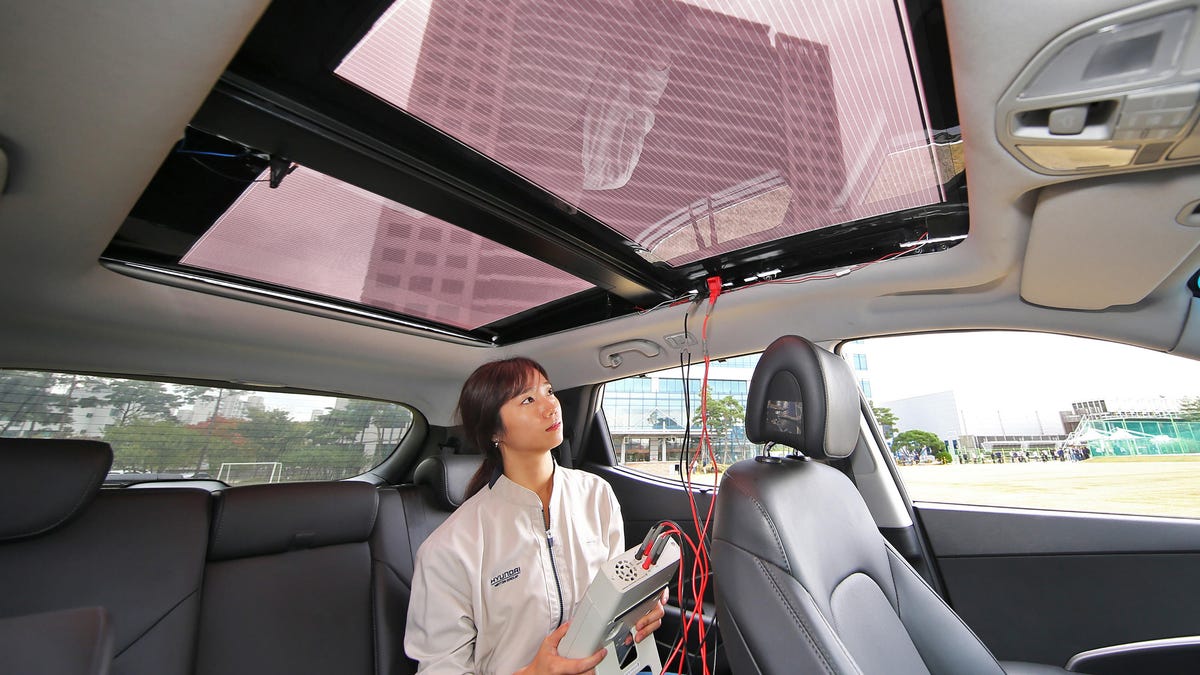Hyundai, Kia hope to add solar panel charging tech to cars in 2019
It will be the first of three different generations of solar-roof tech for the automakers' future vehicles, electric or otherwise.

Putting solar panels on the roofs of cars has long been an idea, but it's never really rolled out to the market in a huge way, although that might change in the next year or two.
Hyundai and Kia announced that the two automakers intend to bring solar-roof charging technology to its vehicles as early as 2019. Its technology is broken down into three distinct charging systems, each being dedicated to a different type of vehicle -- traditional gas cars, hybrids and electric vehicles.
The one we'll see first will exist on hybrids. This tech involves adding silicon solar panels to a regular ol' car roof. Hyundai and Kia estimate that this solar roof can add between 30 and 60 percent of a battery's capacity over the course of a day -- weather depending, obviously. Considering hybrids have the smallest batteries of all, this is a good place to start.
You might have heard about solar panels on a car's roof, but the hood? That's a clever addition.
But the second-generation system will bring solar-based charging to a class of vehicle not normally pegged for this kind of tech -- cars with traditional internal combustion engines. Here, a semi-transparent solar panel can be added to a panoramic sunroof, boosting a vehicle's battery while still letting light into the cabin. It's unclear if these cars will pack slightly larger batteries, or if the panel will merely take some load off the alternator, but Hyundai and Kia say the tech will help the company comply with future emissions standards.
The third-generation system is the furthest out. This one benefits battery-electric vehicles, and it adds solar panels to both the vehicle's roof, as well as its hood. That would give EVs even more solar-panel real estate to convert to energy for batteries, extending range and reducing reliance on grid power, which could come from dirtier sources.
Hyundai and Kia estimate that their first-generation solar roof tech will reach vehicles in 2019, but timelines for the second and third generation have not yet been announced. If this tech can produce tangible benefits, I wouldn't expect this tech to stay limited to just Hyundai and Kia for long.
Hyundai Nexo: Check out our first drive in Hyundai's fuel-cell SUV.
Hyundai Kona Electric: Not a fan of hydrogen? Don't worry, Hyundai has you covered.

